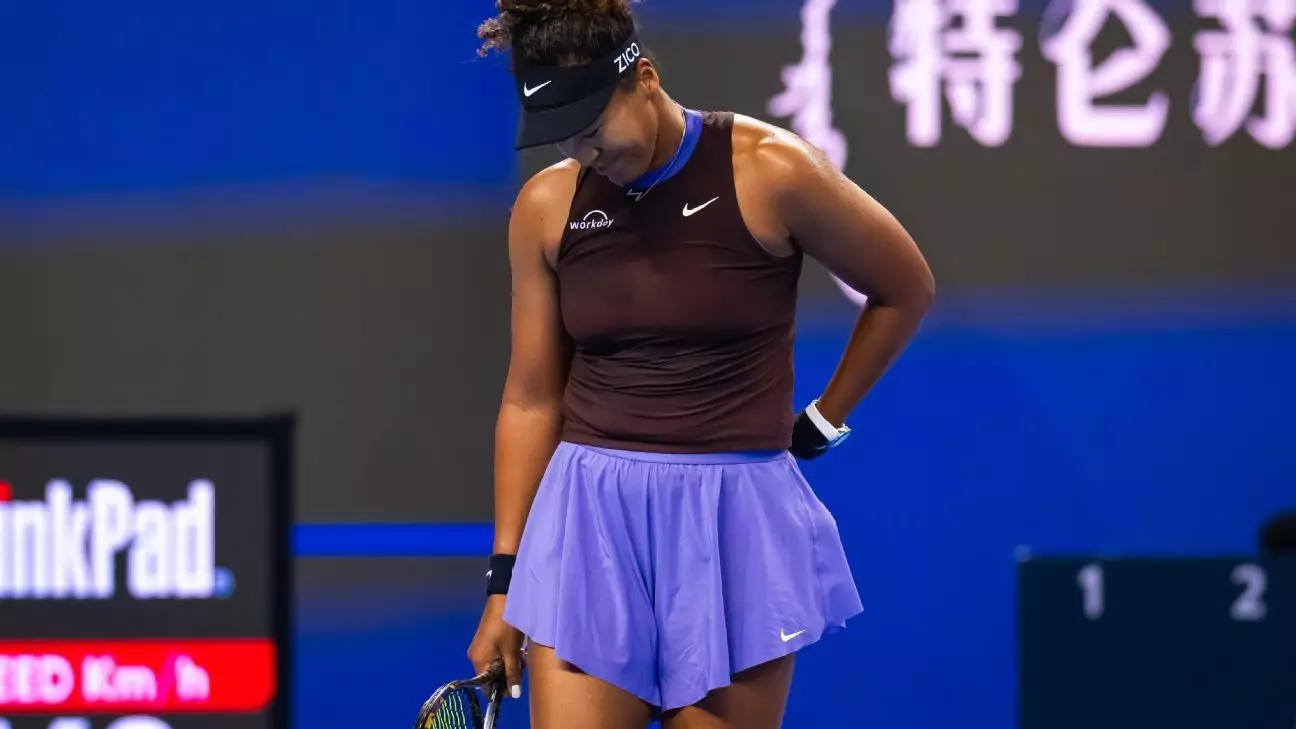In a notable announcement, Naomi Osaka has decided to withdraw from the upcoming Billie Jean King Cup finals in Spain, a strategic decision stemming from ongoing health concerns. The two-time Grand Slam champion has faced a challenging year marred by injury, casting doubt on her performance in recent tournaments during the WTA’s Asian swing. This decision underscores the importance of prioritizing health over competition, as Osaka aims to heal and return stronger for the 2024 season, especially eyeing the Australian Open where she has triumphed twice.
Osaka’s injuries are more severe than initially anticipated. Following her participation in the China Open, she reported discomfort and later learned from medical imaging that she had bulged a disc in her back and ruptured abdominal muscles. Such injuries could have serious long-term implications for an athlete’s career if not properly managed; hence, her choice to withdraw is both prudent and sensible. This decision, although difficult, illustrates a deeper understanding of the risks involved in attempting to compete while still recovering. The mental and physical toll of persistent injuries is significant, and Osaka’s candidness about her situation reflects her maturity as an athlete.
In an evolving career marked by significant changes, Osaka recently transitioned from her long-time coach, Wim Fissette, to working with Patrick Mouratoglou, known for coaching Serena Williams. This partnership suggests a desire for rejuvenation and a fresh perspective in her training regimen. Mouratoglou’s style and strategies could potentially align well with Osaka’s powerful playing style, but the timing is crucial. Balancing a new coaching dynamic while dealing with injuries compounds the challenges she faces. As she reflects on her journey, it is evident that her decisions will shape the trajectory of her career moving forward.
Currently ranked 56th in the world, Osaka is clearly at a professional crossroads. Recovering from injuries while navigating personal and professional changes has been no small feat, but it is essential for a successful comeback. As she takes time off from the competitive scene, the narrative will focus on her capacity to bounce back and reclaim her position among the elite in women’s tennis. Her previous success offers a strong foundation from which she can rebuild. More than just a sports figure, Osaka represents resilience and the importance of mental health, particularly in high-stress environments such as professional athletics.
Looking to the future, Osaka’s commitment to her health and well-being will ultimately be pivotal. As she prepares for the next season, fans and critics alike will be watching closely to see how she leverages her time off to rejuvenate both physically and mentally. The Australian Open represents not just a tournament; it’s a stage for redemption and resurgence. By taking this time now, Osaka demonstrates a profound understanding of the sport and of herself, setting the stage for what could be an inspiring return to form. Her journey is not merely about winning titles; it reflects a broader story of perseverance and personal growth within the relentless world of sports.


Leave a Reply